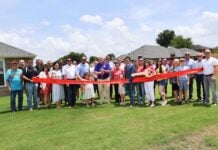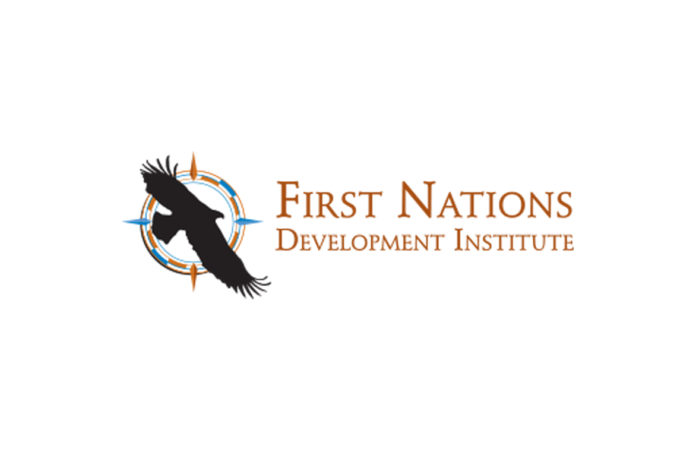LONGMONT, CO – First Nations Development Institute recently awarded grants to six Native-led organizations and tribes to help bolster language immersion programs working to preserve Indigenous languages and cultures throughout the U.S.
This new round of funding marks the fifth cycle of the Native Language Immersion Initiative (NLII) at First Nations. Since its launch in 2017, NLII has made a notable impact throughout Indian Country awarding 52 grants totaling over $4.4 million to grow and strengthen 34 Native language immersion programs.
As stated in the report Ready for a New Decade: Investing in Native Language Immersion, investments in language immersion programs are working, resulting in “much-needed support to stabilize and sustain Native language programs, as grantees reported that the capacity-building investments strengthened their missions and the continuation of their programs.”
First Nations President and CEO Michael Roberts said First Nations has made great strides in the collaborative movement to support the continuity of Native languages. “With the latest awards to six Native partners, we recognize the critical need to invest in and support the work of Native language programs,” said Roberts. “We have come a long way, but we must continue our keen focus on language immersion and revitalization. Native languages strengthen the identity, resilience, and health of Native communities and ensuring their endurance will take the effort and commitment of many generations to come.”
Funding for the 2022 NLII grants cycle is made possible with support from the NoVo Foundation and the Virginia Wellington Cabot Foundation.
2022 NLII Grantees Include:
Euchee (Yuchi) Language Project Inc, Sapulpa, OK: $75,000
Only nine first-language Yuchi speakers, ages 60 to 90 years old, are alive today. The Euchee (Yuchi) Language Project Inc. will grow new, young speakers in the Yuchi language and restore natural transmission in homes by focusing on family-based immersion. The program will develop 12 youth as new speakers in the first year. In the second and third years, the program will offer more expertise and capacity-building to include language documentation and resource development.
Goldbelt Heritage Foundation, Juneau, AK: $75,000
Plans are to revitalize the Tlingit language by providing Tlingit language curriculum and teaching methodology to Southeast Alaska communities. A fluent Tlingit speaker will mentor two high school-based Tlingit language teachers in a master-apprentice immersion program. These teachers will pass on their newly acquired language skills to high school students. All participants will create immersion dialogue videos and the components of three seasonal curricular units to share with Southeast Alaskan educators and community members.
Ke Kula ‘O Pi’ilani, Pukalani, HI: $45,800
This grant will strengthen Hawaiian immersion education by building capacity to teach more children, families, and community members. Curriculum will be created across two thematic units of Lani and Kai (atmospheric space, ocean/seas) allowing teachers to develop lesson plans that put all participants on the same educational journey rooted in Hawaiian values and thought. Funds will support a new Po’o Kumu (head teacher) position and help restructure the organization to better enable teachers to focus and specialize on subject matter that suits their talents and interests.
Salish School of Spokane, Spokane, WA: $74,200
This project will offer Salish language training to parents and other community members in the Spokane Metro area. Participants will achieve at least intermediate proficiency and become language ambassadors, advocates and mentors to children enrolled in immersion programs at Salish School of Spokane (SSOS). Trainees will have direct relationships with children and families currently served by SOSS to sustain intergenerational use and transmission of this critically endangered Indigenous language that has fewer than five surviving fluent speakers in the U.S.
Thunder Valley Community Development Corporation (TVCDC), Porcupine, SD: $75,000
Less than three percent of fluent speakers remain on the Pine Ridge Reservation. To address this language crisis, TVCDC’s Lakota Language & Education Initiative provides Lakota immersion education for children Pre-K to 2nd grade via the Montessori approach. The Lakota Lifeways life skills curriculum introduces cultural practices for children and caregivers in their home environment. New teachers will be recruited and trained in the Montessori approach, while increasing their own Lakota language fluency.
Tuolumne Band of Me-Wuk Indians, Tuolumne, CA: $45,000
This grant will help the 435-member tribe preserve its language and culture. All teachings of traditions, regalia, culture, crafts, and traditional foods will use language immersion curriculum to engage students in becoming active speakers. Elders will provide stories and lessons to the young, from toddlers to high school seniors. Classes are open to all ages, and families are encouraged to participate to learn how to share the language within the home.
















































